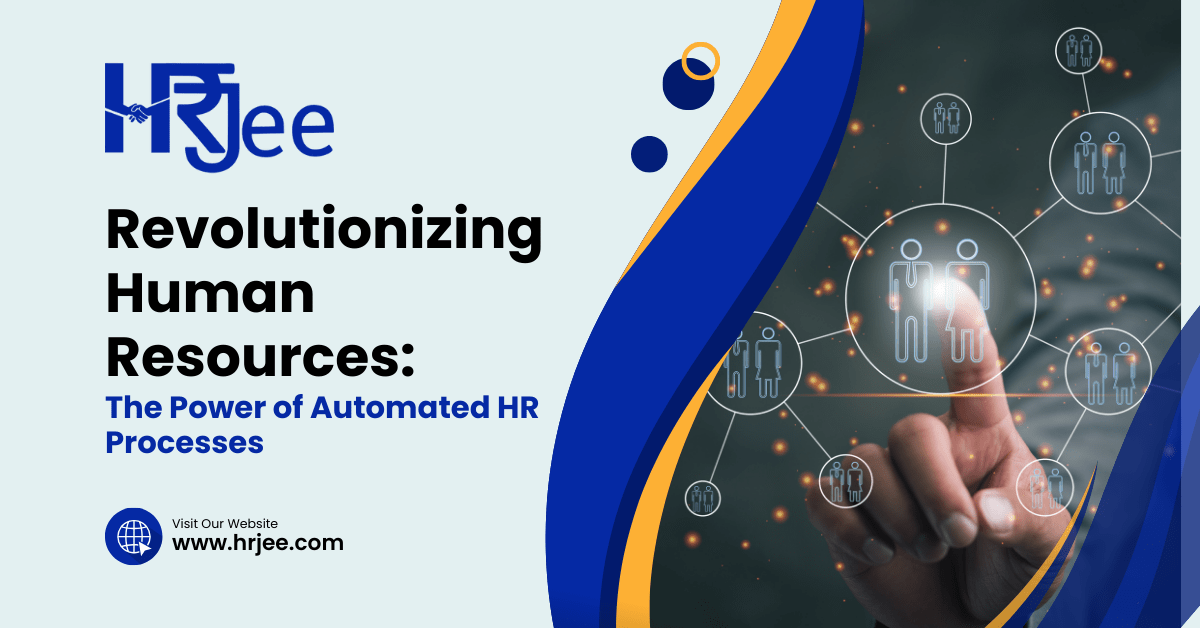In the fast-paced world of business, efficiency is the key to success. One area where organizations are increasingly turning to technology to enhance efficiency is Human Resources (HR). Automation has ushered in a new era of streamlined HR operations, changing the way businesses manage their staff. In this blog post, we’ll explore the benefits and impact of automating HR processes, exploring how it can revolutionize the workplace.
The Rise of Automated HR Processes:
HR automation is the use of technology to expedite and simplify numerous HR operations, including as recruitment and onboarding, payroll, and performance management. The primary goal is to reduce manual effort, minimize errors, and free up HR professionals to focus on more strategic and value-added activities.
Automated Recruitment Processes:
One of the most time-consuming aspects of HR is the recruitment process. Companies can greatly accelerate the hiring process by employing automated solutions. Automation can undertake monotonous chores like analyzing resumes, screening prospects, and even conducting initial interviews, freeing up HR people to focus on creating connections and making more informed recruiting decisions. This saves time and improves the overall quality of the recruitment process.
Streamlined Onboarding:
Once the correct applicant has been chosen, the onboarding process can be smoothly automated. Online portals allow new workers to complete paperwork, access training materials, and learn about corporate regulations. Automated onboarding provides a smooth transition for new personnel, resulting in speedier integration into the team and higher productivity.
Performance Management Simplified:
Automated HR processes also extend to performance management. Traditional performance evaluations can be time consuming and subjective. Mechanical systems, however, enable continuous feedback, real-time performance tracking, and data-driven insights. This facilitates more accurate evaluations and provides employees with a clearer understanding of their performance expectations.
Efficient Payroll Processing:
Payroll is a critical function within HR that demands accuracy and timeliness. Automating payroll processes eliminates the risk of manual errors, ensures compliance with tax regulations, and reduces the burden on HR professionals. Employees may easily access their pay stubs and tax papers thanks to computerized payroll systems, which increase transparency and efficiency.
Employee Self-Service Portals:
Empowering employees to manage their information can significantly reduce the administrative burden on HR. Automated HR processes often include self-service portals where employees can update personal information, access pay statements, request time off, and enroll in benefits. This fosters a sense of autonomy among employees and allows HR teams to focus on more strategic initiatives.
Data-Driven Decision-Making:
Automation creates large volumes of data that can be used to make better decisions. Automated HR procedures offer useful data, from monitoring employee performance patterns to forecasting labor requirements. This data-driven strategy allows HR managers to make more informed decisions about recruitment, training, and talent development, which contributes to the organization’s overall performance.
Enhanced Compliance and Security:
HR processes often involve sensitive information, and ensuring compliance with data protection laws is crucial. Automated human resources systems can enforce compliance rules, handle changes to employee records, and provide secure storage for sensitive data. This reduces the risk of non-compliance and enhances the overall security of HR operations.
Adapting to Change with Agile HR:
The corporate world is continuously shifting, and HR must be agile enough to quickly adjust to changes. Automated HR processes provide the flexibility needed to respond to dynamic market conditions, organizational restructuring, and shifts in workforce demographics. Whether scaling up or down, automation ensures that HR procedures are efficient and effective.
Adopting automated HR processes becomes increasingly important as firms attempt to remain competitive in an ever-changing business environment. The advantages are undeniable: greater efficiency, fewer errors, and a more strategic role for HR professionals. Automation is transforming the human resources sector, from recruitment to performance management and beyond. Embracing this technological shift is not just a choice but a necessity for companies looking to thrive in the future of work. So, let us embrace the transformation and realize the full potential of automated HR operations for a more efficient and successful work environment.


